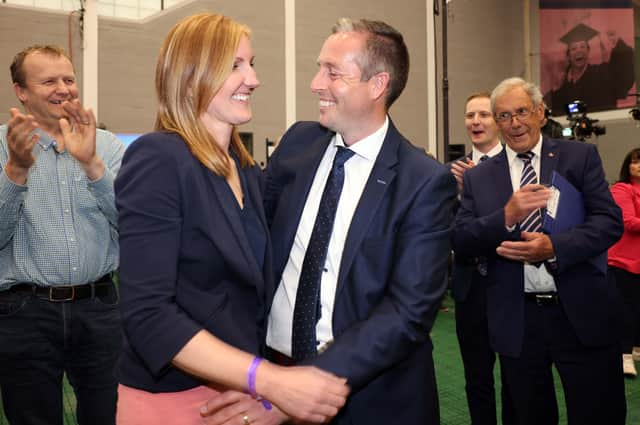ELECTION 2022: WATCH as Paul Givan says ‘I absolutely will not have been the last unionist First Minister for years to come’


He won his seat back in Lagan Valley last night, alongside party leader Sir Jeffrey Donaldson.
However, in light of Sinn Fein’s clear margin of victory in this election, does Mr Givan feel he was the last unionist First Minister that the Province will have for years to come?
“Absolutely not,” he told the News Letter.
Advertisement
Hide AdAdvertisement
Hide Ad“I see that when we combine the DUP, TUV and Ulster Unionist vote, that is 20,000 more pro-Union voters than compared with the Sinn Fein/SDLP combined vote.
“And if you add Alex Easton [former DUP MLA in North Down, now independent] into that, that’s another 10,000 on top of that.
“So there’s 30,000 of a pro-Union majority. Now I’m disappointed that hasn’t translated into more unionist MLAs being elected.
“And I think unionism needs to take a really hard look at itself, because it isn’t delivering the seats it’s getting in first preferences because there’s division there.
Advertisement
Hide AdAdvertisement
Hide Ad“This division of unionism is actually damaging the overall movement. Lessons need to be learned.”
He was also quizzed about how a united unionist party could hold together with both strong liberal and conservative wings.
“There’s obviously policy issues every individual may differ on,” he said.
“But there is one single unifying commonality amongst us all – our desire for NI to have it’s place within the UK.”
More from this reporter: